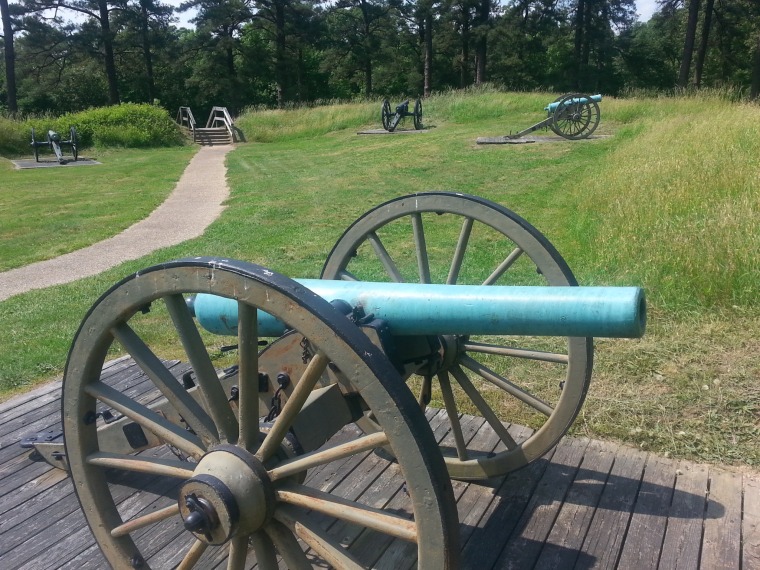PETERSBURG, VA — While Americans spend the weekend honoring those who lost their lives in battle, the National Park Service will be searching for those who stole from the dead.
Less than a week before Memorial Day, authorities at the Petersburg National Battlefield announced an "active crime scene" after a landscaper discovered small excavations in the ground in the “eastern unit” of the 2,700 acre park.
Chris Bryce, chief of interpretation at the battlefield, said that authorities are still in the early stages of the investigation and do not know who desecrated the grounds. Investigators are unsure about what was taken, but the small sized holes indicate that the looter could have taken bullets, musket ball fragments, buttons or cap badges.
"Imagine over 100,000 men at arms here. Just like any other large group of individuals, they are dropping things on campsite, but also on the heat of battle," he said.
Petersburg National Battlefield pays tribute to the longest siege during the Civil War and in U.S. history, which spanned nine and a half months and resulted in a number of battles just south of Richmond. It’s projected that 70,000 Union and Confederate soldiers combined lost their lives during the 292 day sustained operation.

According to the Petersburg National Battlefield, lootings happen every year and only 14 percent are solved. Looting in National Parks is considered a felony, which could result in a $10,000 fine or $20,000 fine with jail time for severe cases.
"One thing we want people to know is that not everyone who goes out and metal detects and looks for artifacts in the ground is a criminal,” Superintendent Lewis Rogers said. “You should not metal detect, you should not dig anything up until you know who’s property it is, and you ask them for permission."
And though looters may think they struck gold with small items, park rangers say removing the tiniest fabric of history can have devastating effects for historians who are still stitching up the remaining stories of war lingering within the battlefield.
"You wouldn't go into the Smithsonian and say 'Oh wow, the Hope Diamond is beautiful I think I'll take that.' It's no different when you walk into a national park," Bryce said. "These are outdoor museums and all the items are here to help us understand better the story of our past."
Deborah Davis was visiting from southern Alabama when she found out about the looting. She and other visitors agreed that looters are probably not aware or ashamed about the damage they’ve left in historic grounds.
"It doesn’t belong to you. It belongs to the mothers and fathers whose sons died on these battlefields," Davis said in reference to the looters.
What’s worse, Bryce said, is the coincidence that looters struck right before Memorial Day, a day the country pauses to remember the lives lost on Petersburg battlefield and elsewhere.
"That's where it's very troubling because these individuals are coming to a national park where soldiers gave their lives 151 years ago in battle defending their beliefs, the beliefs of the nation," Bryce said. "And to have that taken on such a sacred weekend in our country that kind of hits you a little harder.”
